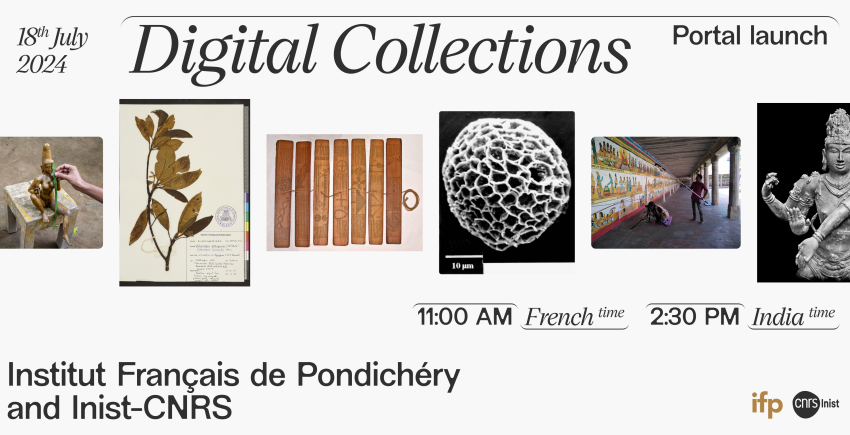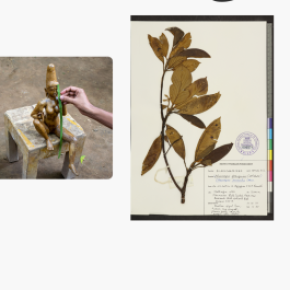Launch of the Digital Collections Portal of the Institut Français de Pondichéry
On July the 18th, the Institut Français de Pondichéry1 , in partnership with the Institut de l’Information Scientifique et Technique (Inist, UAR76, CNRS) will launch his Digital Collections Portal, designed by the german graphism studio Studio Lekko.
- 1The Institut français de Pondichéry (UMIFRE21) is part of the laboratory Savoirs et Mondes Indiens (UAR3330, CNRS / MEAE).

Since the Institut Français de Pondichéry’s inception in 1955, collection building has been an integral part of its research activities. Over the years, many of these collections have been digitized with the help of various partners. New digitized collections have also been created by the Institute's researchers in the framework of projects funded by the Endangered Archives Programme of the British Library. This platform consolidates and curates many of these collections in order to make them widely available to both researchers and the general public.
The Portal, launched this 18th of July, offers a corpus of several thousand images that range from ecological specimens to manuscripts in Indian languages, from photos on temple art to resources on social history.
The launch of this platform, created in collaboration with Inist, a CNRS support and research unit1 , will be held remotely from 2:30 to 4:00 pm French time (11:00 to 12:30 pm Indian time) and will cover the following points:
- Brief introduction of IFP, its collections and the project of Digital Collections (Blandine Ripert)
- Brief presentation of Inist-CNRS (Alain Zasadzinski)
- History of the project (Bharat S.)
- Challenges in data curation (Anurupa N), Inist's support (Edwige Pierot) and questions of design (Kuba Rudzinski)
- Presentation of the Digital collections portal (Edwige Pierot/Anurupa N.)
- Debate opened by Venkat Srinivasan (NCBS and Milli Archives Foundation) on challenges of wider public access of archives and data privacy concerns
The portal was designed by Studio Lekko — Berlin-based graphic design studio engaged in artistic, cultural research and activist projects. Lekko designs typefaces, visual identities, publications, websites and campaigns for cultural and social change.
- 1Inist, a Support and Research Unit of the French National Centre for Scientific Research, provides a range of services dedicated to accessing, analysing and mining scientific information and data, and enhancing research data. Inist's Research Data Exposure Service worked with the French Institute of Pondicherry to prepare the OMEKA S platform that it built.
Further information
Please register here to participate:
https://cnrs.zoom.us/meeting/register/tJclcemoqDwrE9L4TSFMb16hC5OAxT5PEx8G
